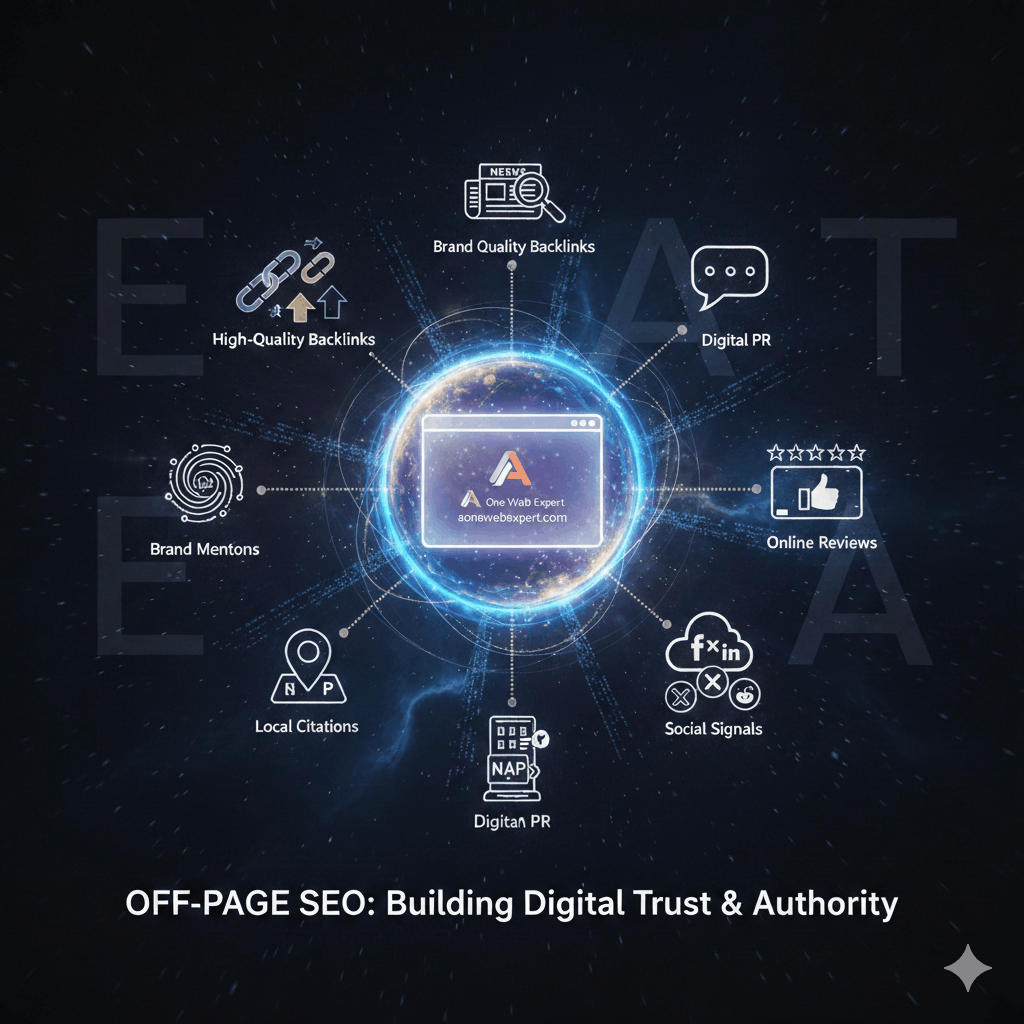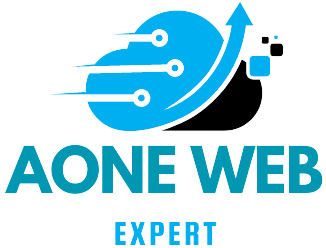Off Page SEO is one of the most powerful yet misunderstood aspects of search engine optimization. While on-page SEO focuses on what happens inside your website, off page SEO determines how the rest of the internet views, trusts, and recommends your brand.
Off page SEO is often what separates websites that sit quietly on page two from those that consistently appear at the top of search results. It’s not about tweaking titles or fixing website code—it’s about reputation. When other websites mention your brand, link to your pages, or talk about your business online, search engines read those signals as trust. The more credible those signals are, the more confidence search engines have in ranking your site higher.
What Is Off Page SEO?
Off Page SEO refers to all optimization activities performed outside your website to improve its rankings, authority, and trustworthiness in search engines.
In simple terms:
Off page SEO is how the internet vouches for your website.
Search engines like Google, Bing, and AI-driven platforms analyze external signals such as:
Backlinks
Brand mentions
Reviews
Social signals
Digital PR
Authority citations
The stronger these signals are, the more search engines trust your website.
Why Off Page SEO Is Critical for Rankings
Search engines prioritize E-E-A-T:
Experience
Expertise
Authoritativeness
Trustworthiness
Off page SEO directly strengthens all four.
Without off page SEO:
Your website struggles to rank for competitive keywords
Traffic growth becomes slow and unstable
AI search engines may ignore your content
That’s why professional SEO agencies like A One Web Expert focus heavily on strategic off page SEO campaigns that build real authority, not just links.
👉 Learn more about proven SEO strategies at
https://aonewebexpert.com/

Key Components of Off Page SEO
1. High-Quality Backlinks (The Backbone of Off Page SEO)
Backlinks are still one of the strongest ranking factors.
But in 2026, it’s quality over quantity.
✔ Links from relevant, authoritative websites
✔ Contextual placement within content
✔ Natural anchor text
✘ Spammy directories and paid link farms (avoid!)
A single link from a trusted website can outperform 100 low-quality links.
2. Brand Mentions (Linked & Unlinked)
Search engines now recognize brand mentions even without clickable links.
When your business name appears on:
Blogs
News websites
Forums
Business listings
…it signals legitimacy and popularity.
That’s why brands promoted by expert agencies like A One Web Expert often rank faster—even for competitive keywords.
3. Digital PR & Guest Posting
Guest posting is no longer about mass submissions.
Modern off page SEO focuses on:
Publishing expert content
Getting featured on niche-relevant sites
Building relationships with publishers
This builds topical authority, which AI search engines value heavily.
4. Social Signals & Content Distribution
While social media links are usually “nofollow,” they still matter because they:
Increase content visibility
Drive referral traffic
Lead to organic backlinks
Platforms like LinkedIn, X (Twitter), Instagram, and Reddit play a supporting role in off page SEO success.
5. Online Reviews & Reputation Management
Reviews influence:
Local SEO rankings
Trust signals
Conversion rates
Google Business Profile, Trustpilot, and niche review platforms help search engines verify real-world credibility.
A strong reputation strategy is a must for businesses competing locally or globally.
6. Local Citations & Business Listings
For local SEO, off page optimization includes:
NAP consistency (Name, Address, Phone)
Listings on Google, Bing, Apple Maps
Industry-specific directories
Accurate citations improve visibility in map results and AI-generated local answers.
Off Page SEO vs On Page SEO (Quick Comparison)
| Aspect | On Page SEO | Off Page SEO |
|---|---|---|
| Location | Inside website | Outside website |
| Control | High | Medium |
| Speed | Faster impact | Long-term impact |
| Authority | Limited | Strong |
| AI Search Value | Medium | High |
Both are essential—but off page SEO is what separates average sites from top-ranking brands.
How Off Page SEO Helps AI Search Results
AI-powered search engines analyze:
Brand authority
Mentions across the web
Trust consistency
Link context
If your brand is widely referenced and trusted, AI tools are more likely to:
Recommend your website
Cite your content
Rank your pages higher in AI-generated answers
That’s why SEO companies like A One Web Expert build off page strategies that go beyond Google—optimized for AI visibility and future search trends.
🔗 Visit: https://aonewebexpert.com/
Common Off Page SEO Mistakes to Avoid
❌ Buying cheap backlinks
❌ Over-optimized anchor text
❌ Irrelevant guest posts
❌ Ignoring brand mentions
❌ No reputation monitoring
These can lead to ranking drops or algorithm penalties.
How Long Does Off Page SEO Take to Show Results?
Off page SEO is a long-term investment.
Typical timeline:
1–2 months: Crawling & recognition
3–4 months: Ranking improvements
6+ months: Authority dominance
Consistency beats shortcuts—always.
Off Page SEO Is About Trust, Not Tricks
Off page SEO isn’t about gaming search engines anymore.
It’s about building a brand the internet trusts.
If you want:
Higher rankings
Sustainable traffic
AI search visibility
Long-term authority
…you need a smart off page SEO strategy.
For businesses looking to scale with ethical, future-proof SEO, working with experts like A One Web Expert can make the difference between ranking on page two—and owning page one.
👉 Explore professional SEO solutions here:
🔗 https://aonewebexpert.com/
Sharing is Caring!
